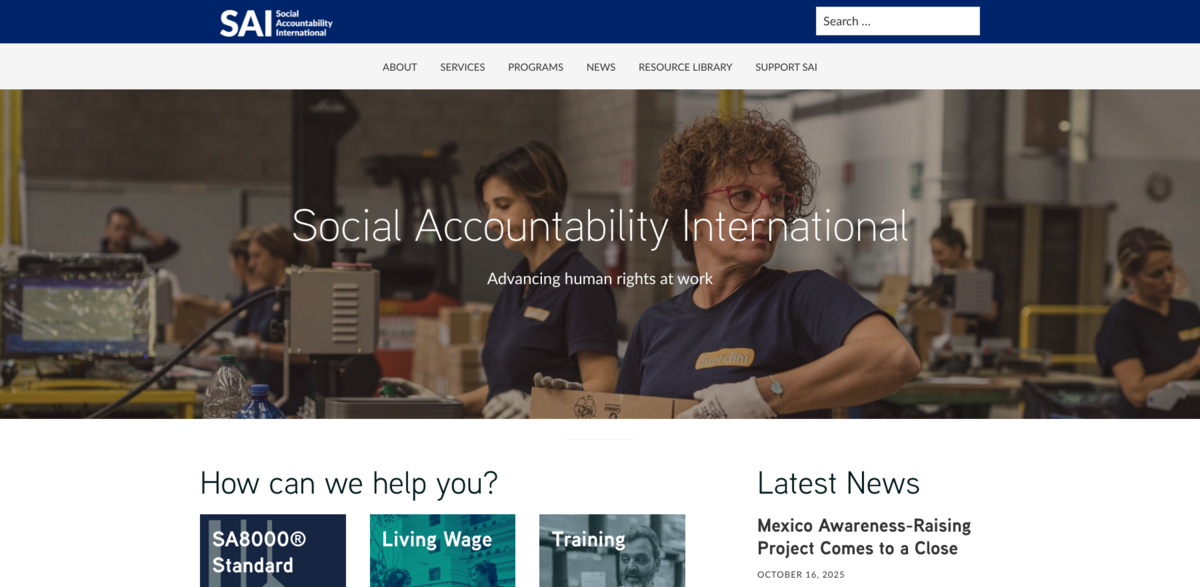What is the Inclusive Waste Recycling Consortium (IWRC)?
The Inclusive Waste Recycling Consortium, or IWRC, is one of the standout featured programs by Social Accountability International (SAI). It’s designed to bring together various stakeholders in the waste recycling sector to promote inclusivity and improve labor rights. The focus here is on creating socially responsible workplaces where workers, businesses, and communities can all thrive together. IWRC embodies SAI’s mission to advance human rights at work, especially in industries that often fly under the radar but are crucial to sustainable development.
Main Benefits of the IWRC Program
Here’s why the IWRC matters, laid out in key points:
- Empowers waste pickers and recycling workers by integrating them into formal supply chains.
- Promotes decent work conditions aligned with the SA8000® Standard.
- Supports capacity-building through training and audit assurance, ensuring compliance and continuous improvement.
- Fosters collaboration among brands, suppliers, governments, and non-profits to create systemic change.
- Encourages community engagement to raise awareness about labor rights in the recycling sector.
Palma Futuro: A Vision for Sustainable Futures
Another key initiative under SAI’s umbrella is Palma Futuro, a program that focuses on sustainable development and human rights in specific communities. It’s all about creating a future where economic growth doesn’t come at the expense of workers’ dignity or environmental health. This program highlights how targeted projects can make a real difference on the ground, especially when they involve local stakeholders and prioritize living wages and fair labor practices.
FairCapacity Program: Building Fair Workplaces
The FairCapacity Program is all about ensuring that workplaces have the right resources and systems to uphold social accountability. It’s a capacity-building initiative that helps businesses and supply chains implement fair labor standards effectively. Through training, audits, and ongoing support, FairCapacity strengthens the ability of organizations to meet the SA8000® Standard and beyond. It’s a practical approach to embedding respect for human rights into everyday business operations.
Living Wage: More Than Just a Paycheck
Living wage is a cornerstone of SAI’s work and featured prominently across its projects. It’s not just about paying workers a salary—it’s about ensuring that wages meet the basic needs of workers and their families, allowing them to live with dignity. This focus on living wage ties directly into SAI’s broader vision of decent work everywhere. By advocating for fair compensation, SAI helps create workplaces where workers feel valued and empowered.
Impact of SAI’s Projects on Sustainable Development Goals (SDGs)
- SDG 1: No Poverty – By promoting living wages and fair labor practices.
- SDG 3: Good Health and Well-being – Through safer, healthier work environments.
- SDG 5: Gender Equality – Empowering women workers and promoting inclusive workplaces.
- SDG 8: Decent Work and Economic Growth – Core to all SAI initiatives and standards.
- SDG 12: Responsible Consumption and Production – Especially relevant to IWRC and recycling efforts.
- SDG 17: Partnerships for the Goals – Collaboration with governments, brands, and NGOs.
How SAI Advances Human Rights at Work
Founded in 1997, Social Accountability International has been a global leader in advancing human rights at workplaces. Using tools like the SA8000® Standard and innovative programs such as Social Fingerprint® and TenSquared, SAI empowers workers and managers alike. Their approach is multi-industry and multi-stakeholder, working hand-in-hand with brands, suppliers, trade unions, governments, and academia. The goal? To create socially responsible workplaces that benefit businesses while securing fundamental human rights. It’s a vision of decent work everywhere, sustained by real understanding and collaboration.


















